Join us for this special event to launch the Recovery Capitals (ReCap) resources.
www.recoverycapitals.org.au
Recovery Capitals resources launch: A cross-Tasman collaboration to support wellbeing after disasters
This webinar launches a new set of evidence-based resources for people and organisations engaged in disaster recovery. The resources were produced through the Recovery Capitals (ReCap) project, a collaboration between researchers, organisations and governments across Australia and Aotearoa New Zealand.
The ReCap resources are designed to support strengths-based, holistic and inclusive recovery approaches. They emphasise the interconnectedness between seven ‘recovery capitals’ – natural, social, financial, cultural, political, built and human.
Find out more about how the ReCap resources might be useful in your work.
Guest speakers
Phoebe Quinn
Research Fellow, University of Melbourne
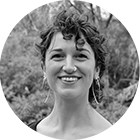 |
Phoebe Quinn is a Research Fellow in Disaster Recovery at the Melbourne School of Population and Global Health in the Child & Community Wellbeing Unit. She holds a Master of Public Health from the University of Melbourne. Phoebe’s primary interests are in disaster recovery and resilience, community wellbeing and social equity. Her work involves close collaboration with government agencies, organisations and researchers to develop evidence-based guidance for policy and practice. This includes the development of the Recovery Capitals (ReCap) resources which support holistic, inclusive and strengths-based approaches to disaster recovery. She has a particular interest in diversity and social justice in disasters and recovery.
|
Emily Campbell
Research Officer, Massey University
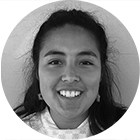 |
Emily is a Research Officer at the Joint Centre for Disaster Research at Massey University in Aotearoa New Zealand. Her work explores the intersection between design, communication and behavioural science for disaster risk reduction and sustainable development. This means developing culturally specific and human-centred means for improving comprehension to key information to ensure appropriate knowledge transfer and audience engagement. She has also recently completed her Masters in Urban Planning and Design.
|
Bhiamie Williamson
Research Associate & PhD Candidate, Australian National University
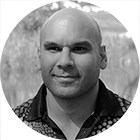 |
Bhiamie Williamson is a Euahlayi man from north-west New South Wales with familial ties to north-west Queensland. In 2014, Bhiamie graduated from the Fenner School of Environment and Society at the Australian National University (ANU). Bhiamie has postgraduate qualifications from the University of Victoria, British Columbia, Canada; the Native Nations Institute, University of Arizona, United States; the University of Wollongong. Bhiamie is a Research Associate and PhD Candidate at the Centre for Aboriginal Economic Policy Research (CAEPR), ANU.
|
Bronwen Sparkes
Director, National Disaster Recovery Policy and Frameworks, National Recovery and Resilience Agency
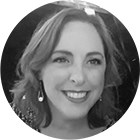 |
Bron Sparkes survived the 2009 Black Summer Bushfires with her husband and young children (2 and 4 years), who were living in Kinglake at the time. They narrowly escaped their burning home, and sheltered together between water tanks under a woollen blanket. They returned to Kinglake, and lived in a caravan on their block for 2.5 years while they rebuilt their home and lives, with the support of friends, family and their community. The family moved to Canberra in 2014 and Bron now works for the National Recovery and Resilience Agency as the Director for National Disaster Recovery Policy and Frameworks. She is also completing a Masters in Disaster Resilience and Sustainable Development at the University of Newcastle.
|
Kirsten Jenkins
Manager Health, Local Laws and Emergency Management, Maroondah City Council
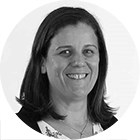 |
Kirsten had a significant role in Nillumbik Shire’s response to the February 2009 bushfires that affected the municipality, both in recovery and public health areas. She has been to Haiti and Nepal following their earthquakes as a Community Health delegate with the Australian Red Cross. Since starting at Maroondah City Council in April 2016 she has been in the position of managing the Council’s Emergency Management planning and recovery programs, more recently developing the Maroondah Covid Recovery Plan.
|
Michael Donoghue
Disaster Recovery Manager, New Zealand Red Cross
 |
Michael has worked in disaster Recovery and led teams serving people impacted by crisis and trauma since 2005. Michael is presently the national Disaster Recovery Manager at New Zealand Red Cross. Michael’s work spans the Recovery from the Canterbury 2010/11 earthquakes, the November 2016 earthquake sequence and the Christchurch terror attacks, along with many other emergencies across New Zealand. Michael also leads the development and provision of the psychosocial support New Zealand Red Cross people provide to those impacted by disasters.
|
Webinar host
John Richardson
National Resilience Adviser, Australian Red Cross
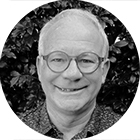 |
John Richardson is the National Resilience Adviser for Australian Red Cross. He has 24 years of experience in preparedness, response and recovery in government and NGO settings, with individual, local, state, national and international levels. He led the development of Red Cross’ unique preparedness program, Rediplan. He has also worked closely with disaster affected individuals and communities. He is also an Honorary Fellow of the University of Melbourne on the health and wellbeing trajectories of the Black Saturday Bushfires. He is a member of the United Nations Office of Disaster Risk Reduction’s Global Risk Assessment Framework working groups. John has a background in Geography and Nursing, with a strong interest in the human impacts of disaster, particularly death and bereavement.
|
ReCap is a collaboration between the University of Melbourne, Massey University (Aotearoa New Zealand), Australian Red Cross, the Bushfire and Natural Hazards CRC, and other researchers, government and non-government agencies and organisations from across Australia and Aotearoa New Zealand.













